Chargeback fraud happens when a customer contests a legitimate transaction with their card issuer to receive a refund while still keeping the product or service. This type of fraud can be especially harmful in the travel sector, where high-value transactions like flights and vacation packages are frequent. Often referred to as "friendly fraud," chargeback fraud has surged in e-commerce, posing significant challenges for businesses to manage effectively. Travel companies, which depend largely on online bookings, are particularly at risk, as refunds may be issued before the dispute is fully investigated, resulting in possible financial and operational difficulties.
Chargeback Fraud in Travel
Chargeback fraud poses a serious threat to travel companies, primarily due to the substantial value of transactions and the nature of advance bookings for various services. Customers often reserve flights, accommodation, or packages and subsequently dispute the charges to obtain refunds, frequently after the services have already been delivered. This situation can result in significant financial losses for travel businesses, particularly if they have already compensated third-party suppliers or provided services that are non-refundable. The repercussions of chargeback fraud go beyond immediate financial impacts, as travel companies also face chargeback fees and administrative expenses, which can gradually diminish profit margins.
For travel businesses, it is crucial to strike a balance between ensuring customer satisfaction and implementing effective fraud prevention measures. While chargebacks serve as a valid consumer protection tool, they can be exploited by some customers looking to bypass refund policies. This issue is especially complex in the travel sector, where legitimate disputes may occur due to service interruptions, delays, or unforeseen changes in bookings. Travel companies need to remain vigilant in monitoring and tackling chargeback fraud while preserving the trust and satisfaction of genuine customers who may have valid concerns.
Additionally, chargeback fraud can tarnish a travel company’s reputation with banks and payment processors. A high rate of chargebacks can result in increased processing fees, intensified scrutiny, or even the loss of the ability to accept certain card payments. For travel companies that depend heavily on card transactions, effectively managing chargebacks is vital for maintaining a positive relationship with payment providers and minimising potential disruptions in their payment processing operations.
Chargeback Fraud Challenges
One of the primary obstacles in tackling chargeback fraud within the travel sector is the challenge of differentiating between fraudulent claims and legitimate customer grievances. Many travel services come with non-refundable terms or stringent cancellation policies, which can create confusion or dissatisfaction among clients. When customers face issues with their bookings, they might opt for chargebacks if they feel their concerns cannot be resolved directly with the travel provider. It is crucial for travel companies to strike a balance between delivering exceptional customer service and upholding refund policies to deter chargeback misuse while preserving customer confidence.
Another significant hurdle is the intricate nature of the chargeback dispute process. Addressing chargeback fraud necessitates thorough documentation, including evidence of service delivery, customer interactions, and transaction records. This can be particularly challenging for travel companies that handle a high volume of transactions or collaborate with third-party suppliers. In situations where services are rendered by external vendors, collecting the required evidence for disputes can be labor-intensive and may prolong resolution times, leading to financial setbacks for the business.
Moreover, chargeback fraud can be elusive and unpredictable, as trends may differ based on customer demographics, transaction types, and regional variations. Travel companies that operate on a global scale must also contend with differing chargeback policies across various card networks and countries, complicating their fraud prevention initiatives. Establishing effective fraud detection and management strategies demands specialised resources, which can pose a challenge for smaller travel firms or those lacking dedicated fraud prevention teams.
How Felloh can Help with Chargeback Fraud
Felloh equips travel companies with essential tools to track transactions and recognise patterns that may indicate chargeback fraud, thereby minimising losses and effectively managing disputes. With its sophisticated transaction monitoring features, Felloh empowers travel businesses to identify suspicious behaviours, such as repeated disputes from the same individual or unusual booking patterns that could signal fraudulent activity. By detecting potential fraud at an early stage, Felloh enables travel companies to implement preventive measures, such as seeking additional verification or engaging with customers to resolve issues before they escalate into chargebacks.
Moreover, Felloh’s platform enables the evidence-gathering process for chargeback disputes by automating the collection and organisation of transaction data, communication logs, and booking confirmations. This efficient method allows travel companies to respond swiftly to chargeback claims, enhancing their likelihood of successfully contesting fraudulent disputes. By offering structured assistance in managing disputes, Felloh helps travel companies save time and resources in handling chargebacks, thereby safeguarding their revenue and maintaining a positive relationship with payment providers.
In addition, Felloh provides valuable insights and reporting tools that enable travel companies to assess the effects of chargeback fraud on their operations. By examining trends in chargeback incidents, Felloh allows businesses to refine their fraud prevention tactics and improve customer service practices to deter chargeback misuse. With Felloh’s assistance, travel companies can effectively balance proactive fraud prevention with responsive customer service, ensuring they protect their revenue while maintaining high levels of customer satisfaction.









.svg)





